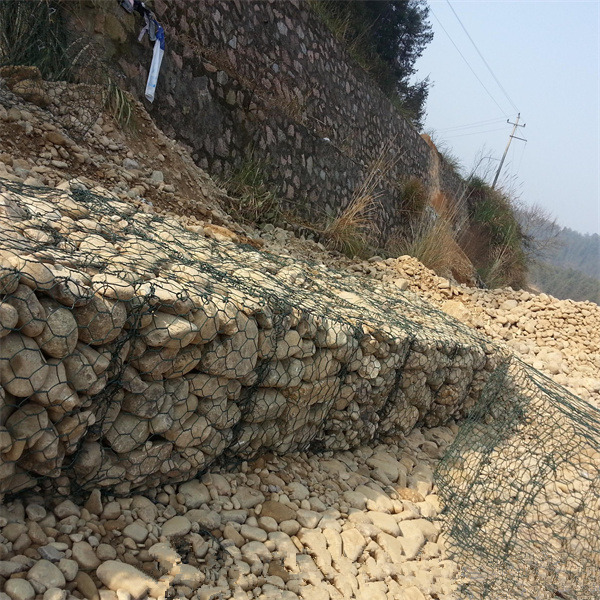Nov . 12, 2024 10:20 Back to list
gabion wall wire gauge suppliers
Understanding Gabion Wall Wire Gauges A Guide for Suppliers
Gabion walls have gained popularity in recent years for their durability, versatility, and aesthetic appeal. These structures, made from wire mesh and filled with stones or other materials, offer effective solutions for various landscaping, erosion control, and retaining wall needs. One fundamental aspect of the design and construction of gabion walls is the wire gauge used in the mesh. This article explores the significance of wire gauges, their implications for suppliers, and what buyers need to consider when selecting gabion wall products.
What is Wire Gauge?
Wire gauge refers to the thickness of the wire used in gabion mesh production. Gauges are typically measured using the American Wire Gauge (AWG) system or the metric system, with lower numbers indicating thicker wires. For gabion walls, the wire gauge is crucial as it affects the strength, durability, and overall performance of the structure. For instance, a thicker wire can withstand higher loads and resist corrosion better than a thinner wire, making it a vital component for long-lasting gabion walls.
Importance of Wire Gauge in Gabion Walls
1. Load-Bearing Capacity The thickness of the wire directly impacts the load-bearing capacity of the gabion wall. Thicker wires can support heavier loads, making them suitable for larger applications or areas prone to significant stress, such as slopes and retaining walls.
2. Durability Gabion walls are often exposed to harsh environmental conditions. The selection of wire gauge plays a significant role in the lifespan of these structures. Thicker wires tend to resist deformation and wear caused by environmental stresses such as temperature fluctuations, wind, and water erosion.
3. Corrosion Resistance Many suppliers offer gabion wire coated with materials like PVC or galvanized steel. A thicker wire can provide better protection against corrosion, especially in areas with high moisture or saline environments. This aspect is crucial for ensuring the longevity of gabion walls.
4. Installation and Handling Wire gauge also impacts the ease of installation. Thicker wires can be more difficult to bend and shape, which may necessitate specialized tools or additional labor, thus affecting project costs. On the other hand, thinner wires may be easier to work with, but they do not offer the same structural integrity.
gabion wall wire gauge suppliers

Choosing the Right Wire Gauge Considerations for Suppliers
When supplying gabion wall products, it is essential to educate customers on the choices available regarding wire gauge. Here are some factors suppliers should consider
1. Application Requirements Understand the specific needs of the customer. For instance, if the gabion wall is being used for erosion control, it may require a thicker gauge to withstand soil pressures and environmental stresses.
2. Budget Constraints Customers may have budgetary limitations that influence their choice of wire gauge. As a supplier, it is essential to balance cost with performance, advising customers on the best options for their specific projects.
3. Regulatory Standards In some regions, there may be construction codes or standards that dictate the minimum wire gauges for gabion walls. Suppliers should be knowledgeable about these regulations to ensure compliance and provide valuable guidance to their clients.
4. Availability of Materials Suppliers should have a range of wire gauges readily available to meet diverse project requirements. Keeping a well-stocked inventory of various gauges will enable suppliers to respond quickly to client needs and market demands.
Conclusion
Gabion walls are a robust solution for a variety of construction and landscaping needs, and the wire gauge used in their construction is a pivotal factor in their performance and durability. Suppliers play an essential role in educating their customers about the importance of wire gauges, aiding them in making informed decisions. By understanding the implications of wire gauge choices, suppliers can significantly enhance their service offerings, ensuring that their clients receive high-quality and effective gabion wall solutions. Ultimately, a well-informed supplier can foster trust and build lasting relationships with their customers in the competitive market of gabion wall solutions.
-
hesco-gabion-baskets-for-coastal-erosion-prevention
NewsAug.22,2025
-
longevity-and-durability-of-river-rock-gabion-walls
NewsAug.22,2025
-
how-to-integrate-gabion-3d-walls-in-urban-planning
NewsAug.22,2025
-
reno-mattress-gabion-applications-in-civil-engineering
NewsAug.22,2025
-
how-to-install-wire-mesh-for-gabion-baskets-properly
NewsAug.22,2025
-
best-materials-for-filling-a-chain-link-gabion
NewsAug.22,2025
-
Wire Mesh Thickness Impact on Gabion Wall Load Bearing
NewsAug.12,2025






